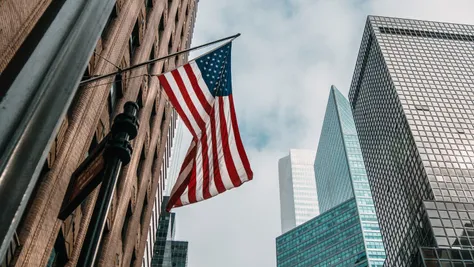There is no criminal like Pablo Escobar. This is how one could summarise the decision of the European Court of Justice of 17 April 2024, upholding the decision of the Board of Appeal of the European Union Intellectual Property Office to refuse the application for the European trade mark "Pablo Escobar" on the grounds of its "conflict with public policy and accepted principles of morality".
What do Al Capone, Bonnie and Clyde, Tony Montana (Scarface) and Don Corleone (The Godfather) have in common?
- they are all perceived as criminals (whether real or fictional),
- their public image is co-created by literature and films,
- all of them can be considered to be popular (in their own way),
- and "IP fun fact" at the end - in all cases, their names are registered as EU trade marks, even though they have undoubtedly committed serious, though in some cases fictitious, crimes.
However, one name is missing from the top league of “registered gangsters”. Although, given the almost mythical nature of the character to whom it belongs, it would not be missing. Pablo Escobar. You would look in vain for his name in the register of the European Union Intellectual Property Office ("EUIPO").
What was that all about?
Escobar Inc., the company that manages the estate of Pablo Escobar's family, filed an application for registration of the word mark "Pablo Escobar" with EUIPO in September 2021. The application was refused with a reference to Article 7(1)(f) of Regulation (EU) 2017/1001 of the European Parliament and of the Council of 14 June 2017 on the European Union trade mark (the "Regulation"), i.e. for being contrary to public policy and to accepted principles of morality. Escobar Inc. filed an appeal against the decision(link to decision T-255/23 HERE), which was dismissed by the Board of Appeal of EUIPO, and subsequently brought an action.
Pablo Escobar as Robin Hood of Colombia
In the action, Escobar Inc. argued, inter alia, that Article 7(1)(f) of the Regulation must be applied in a cautious and narrow manner and an infringement of public policy and accepted principles of morality should be found only where a sign is actually perceived as being incompatible with the fundamental moral values and standards of society.
Escobar Inc.'s principal argument was that the names of characters such as ‘Robin Hood’, which have become mythical, symbolic or archetypal in mainstream popular culture, even when associated with crimes, no longer fall within the scope of Article 7(1)(f) of the Regulation. Accordingly, the names of Bonnie and Clyde, Al Capone or Che Guevara have already been registered as EU trade marks. Pablo Escobar, because of his many good deeds for the poor in Colombia, has become a mythical figure in mainstream popular culture, as evidenced by the entry about him in the online encyclopaedia Wikipedia, the successful series ‘Narcos’ broadcast worldwide, including in Spain, and the fact that during his lifetime he was nicknamed the ‘Robin Hood of Colombia’. (see paragraph 14 of the Decision).
Escobar Inc. further submitted that by refusing to register the mark applied for on the basis of alleged criminal acts attributed to Pablo Escobar, the Board of Appeal infringed its obligation, under the case-law, to take account of the fundamental right to the presumption of innocence, as enshrined in Article 48(1) of the Charter of Fundamental Rights.
Pablo is neither Al Capone nor Clyde
In its Decision, the Court upheld the correctness of EUIPO’s conclusions that the public associates Pablo Escobar’s name with the crimes committed by the Medellín cartel or directly attributed to Pablo Escobar, rather than with his possible good deeds for the poor in Colombia.
The Court also noted that the fact that the names of Bonnie and Clyde or Al Capone have already been registered as EU trade marks is not such as to call into question the assessments by which the Board of Appeal correctly interpreted and applied, in the present case, Article 7(1)(f) of the Regulation, as interpreted by the case-law, by referring to the specific perception of the name Pablo Escobar.
Finally, the Court added that Pablo Escobar's fundamental right to the presumption of innocence had not been infringed, even though he had never been convicted, he was perceived by the relevant public as a symbol of organised crime responsible for numerous crimes.
What about Don Corleone?
The Court therefore, like EUIPO in the previous proceedings, based its assessment of the case on the principle of “perception by the public of the name applied for”. In other words, whether Pablo Escobar (did or did not) commit the crimes attributed to him in literature or films is irrelevant to registrability. It is sufficient that the public believes he is responsible for such crimes.
However, the same can be said of the other characters in the “League of Villains”, whether real or fictional! Al Capone, like Pablo, was a criminal... Like Pablo, he had never been convicted (of violent crimes) and was even seen as a do-gooder by part of the public. Still, Al Capone “got” his trade mark. Same with Bonnie and Clyde. And I am not talking about "Stalin cookies that rule!" (see trade mark # 11583572 "STALIN COOKIES! COOKIES THAT RULE!", which has been registered with EUIPO since 2013; link HERE).
And how do the names of the fictional villains fit into the whole concept? The registrability of Don Corleone and other film gangsters has not been questioned in any way so far. They, too, have their trade mark, although they have undoubtedly - and not only probably - committed serious crimes that are contrary to the “indivisible and universal values on which the European Union is founded”.
Conclusion
One thing is certain, a sign that is perceived by some as "merely" inappropriate or tasteless is perceived by others as synonymous with suffering and an attack on ethical principles and morality. At the same time, unfortunately, according to the Decision, one cannot rely on EUIPO's practice, which seems to be at least very inconsistent in its interpretation of Article 7(1)(f) of the Regulation.







